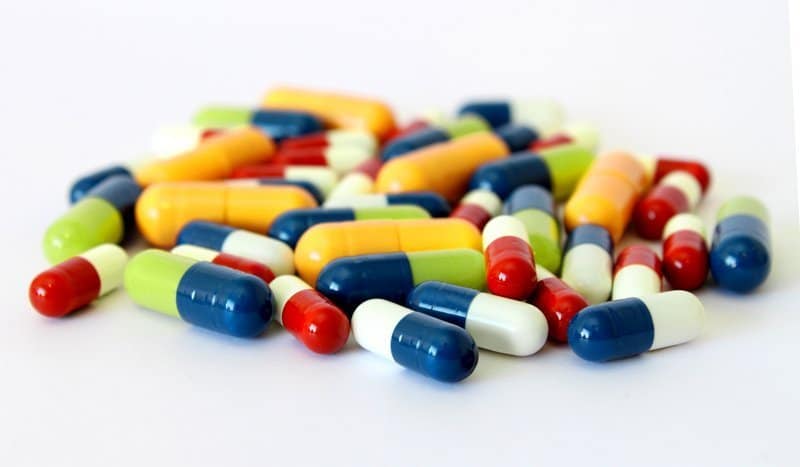- Home
- Product
- Patient
- Order Online
- Prescription Quote
- Collect at your Pharmacy
- Find a Pharmacy
- Find a Integrative Doctor
- Track my Medicine
- What is a Compounding Pharmacy?
- Child Friendly Medication
- Vet & Animal Compounding
- Easy to Swallow Pills
- Motion & Seasickness
- Medication without the Additives
- Unavailable Medications
- Schedule 8 Shipping Waiver
- Pharmacists
- Prescribers
- Shop
- FAQs
- About
- Careers
- Contact Us
- Home
- Product
- Patient
- Order Online
- Prescription Quote
- Collect at your Pharmacy
- Find a Pharmacy
- Find a Integrative Doctor
- Track my Medicine
- What is a Compounding Pharmacy?
- Child Friendly Medication
- Vet & Animal Compounding
- Easy to Swallow Pills
- Motion & Seasickness
- Medication without the Additives
- Unavailable Medications
- Schedule 8 Shipping Waiver
- Pharmacists
- Prescribers
- Shop
- FAQs
- About
- Careers
- Contact Us
Could you be allergic to the dyes used in your medication?

A recent article in the New York Times has shone the spotlight on a source of allergy that is commonly overlooked by allergy-sufferers, GPs and even allergy specialists – the artificial dyes used in some prescription medications.
The article begins with the story of an American woman who was driven half-mad by constant itching that started as a bout of hives. Desperate for relief she saw numerous doctors and allergists and was given medication commonly prescribed for this kind of allergic condition. However her relentless itching continued unabated for 8 excruciating months until she was referred to expert dermatologist Dr. Robert Swerlick from Emory University in Atlanta.
Dr Swerlick was familiar with the food dyes used in some medications and so when informed of the woman’s known allergy to sulfa drugs, he immediately looked at the ingredients in the anti-allergy medication she had been taking. He suggested she switch to a brand that didn’t contain dyes to see what would happen.
“The day after I switched, I was 90 percent better,” the woman told the New York Times, adding, “I was swallowing my problem by the handful every day.”
Compounding Pharmacist Matthew Bellgrove from National Custom Compounding on the Gold Coast said that, while not common, allergic reactions to the dyes used in medication could be more prevalent than we think. This is a sentiment echoed by Dr Swerlick in a paper he published in 2013 where he wrote, “We believe that reactions to agents that color medications and foods may be more common than previously appreciated and that recognition of this phenomenon may provide therapeutic alternatives to patients with intractable pruritic (itching) disorders.”
Matthew said the concern over food dye allergies from medications was two-fold.
“It’s not just the allergy itself. The worry is that some people may be avoiding taking certain beneficial medication in the belief that they’re allergic to the medication, when in fact they’re just allergic to the dyes used in the medication,”
“The dyes are purely for looks, and to differentiate one kind of drug from another in a clinical setting; they don’t have any therapeutic value,” Matthew said, “A compounding pharmacist can make up the same medication without the dyes, and you get the same medicinal benefit, without the additional worry of what kinds of dyes you’re ingesting.
Testing for allergies to dyes used in medications
There are currently no 100 percent effective tests for diagnosing allergies to the kinds of food dyes uses in medications. Most doctors and allergists use the ‘trial and error’ diagnostic method – remove something that has been known to cause allergies in others and see if symptoms improve over time.
Dr Swerlick told the New York Times that one of the red flags for him was when a new patient came to his clinic with a long list of drugs they believed they were allergic to. “You realise they can’t be allergic to all these medications. It must be something common to all of them, like a dye. That’s one of the clues.”
Mathew said that if people had a known allergy to a food or a food colouring they should always check the ingredients of any new medication they take.
“The ingredients will always be on the label, regardless of whether it’s prescription or non-prescription medication, and your local pharmacist should also be able to provide you with this information if you’re still unsure,” Matthew said, “However I can’t stress enough how important it is to always check with your doctor first before starting or discontinuing any medication – even if you do think you have an allergy.
“Talk to your doctor about your concerns first – if they also suspect it could be a dye allergy they can test the theory by getting your medication made up without the dyes by a compounding chemist. If there’s a lessening of symptoms then you might be on to something and you can work together to find the right solution for you.”
For more information on medications made without additives speak to one of the friendly team at National Custom Compounding on 1300 731 755 or drop a line to [email protected]
